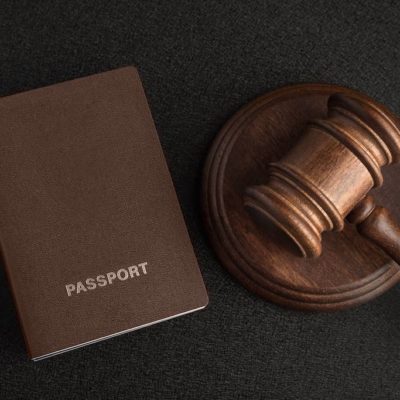
Recognition of Foreign Judgments in Australia
Persons or organisations seeking to recognise and enforce a Judgment made by a Court within the People’s Republic of China into an Australian state jurisdiction may be able to do so in certain circumstances. Our team, acting on behalf of Judgment Creditor, was recently successful in attaining Court Orders granting recognition of two Judgments made by a Chinese District Court, including the Judgment of the proceedings at First Instance and ‘the Enforcement Verdict’ into the State of Victoria jurisdiction. This recognition has now enabled our clients to enforce the outstanding Judgment Debt in Victoria through subsequent enforcement procedures, such as obtaining a Warrant of the Seizure and Sale of Land, which otherwise would not have been permissible.
In addition to attaining status of the foreign judgment, our clients were also able to recover reasonable legal costs incurred in commencing such Court proceedings as well as interest accrued up to the date of registration. Notably, the Court calculated the accrued interest in accordance with the higher interest rate stipulated by the foreign judgment at First Instance, rather than the interest rates stipulated by Victorian legislation.
Relevant Law
Recognition and enforcement of foreign judgments in Australia are usually possible pursuant to the Foreign Judgments Act 1991 (Cth). However, this statutory regime does not apply to judgments of all foreign jurisdictions. For example, as China is currently not within the scope of the Foreign Judgments Act 1991 (Cth), a person or organisation seeking to recongise and enforce a Chinese judgment in Australia may rely upon common law principles.
Four Conditions
For an Australian court to make orders for the recognition and enforcement of a foreign judgment under common law principles, the party seeking to rely upon the foreign judgment must establish the following four conditions:
1. The foreign court must have exercised jurisdiction that Australian courts recognise.
The foreign court must have had jurisdiction over the defendant at the time when the jurisdiction of the foreign court was invoked. The defendant (a natural person), therefore, must have been domiciled or ordinarily a resident in the foreign jurisdiction, have voluntarily submitted to the jurisdiction of the foreign court or needed to have been physically present in the foreign jurisdiction when served with the originating process for the foreign proceedings. Similarly, a defendant corporation, at the time of service, must have carried on business within the jurisdiction of the foreign court.
2. The foreign judgment must be ‘final and conclusive’.
The matters within the foreign proceedings must be concluded prior to commencing court proceedings in Australia. The key test of finality is whether the foreign court treats its judgment as res judicate, meaning there has already been a final judgment of the issues in dispute as between the parties. This condition is not negated by the fact that the Judgment Debtor may appeal the decision of the foreign court or that appellate proceedings are pending. However, the status of foreign judgment proceedings are likely to be stayed until the outcome of such an Appeal is made by the foreign court.
3. The identity of the parties to the foreign judgment must be the same as the parties to the Australian enforcement proceedings.
4. The foreign judgment must be for a debt or definite sum of money. The debt must, however, not be for a Revenue Debt.
Defence
In circumstances where a party is able to establish the four conditions, the other party may challenge the recognition of the foreign judgment only on limited grounds. A defence may be raised on such grounds, including, but not limited to:
- The foreign judgment is contrary to Australian public policy
- The foreign court acted contrary to natural justice
- The foreign judgment was obtained by fraud
- The foreign judgment is penal
The formal requirements and procedure applicable to commence court proceeding in status of foreign judgment matters pursuant to common law principles does vary between state jurisdictions within Australia. Generally, the originating process must be accompanied by a supporting Affidavit which must annex the following documents:
- A copy of the foreign judgment certified by the proper officer of the foreign court and authenticated by its seal; and
- If the foreign judgment is not in English, a translation of the judgment certified by a Notary Public.
Please contact our firm for advice specific to your circumstances.
Disclaimer: This publication is general information only and does not purport to provide legal advice. We do not accept responsibility for any losses for reliance upon this publication.
